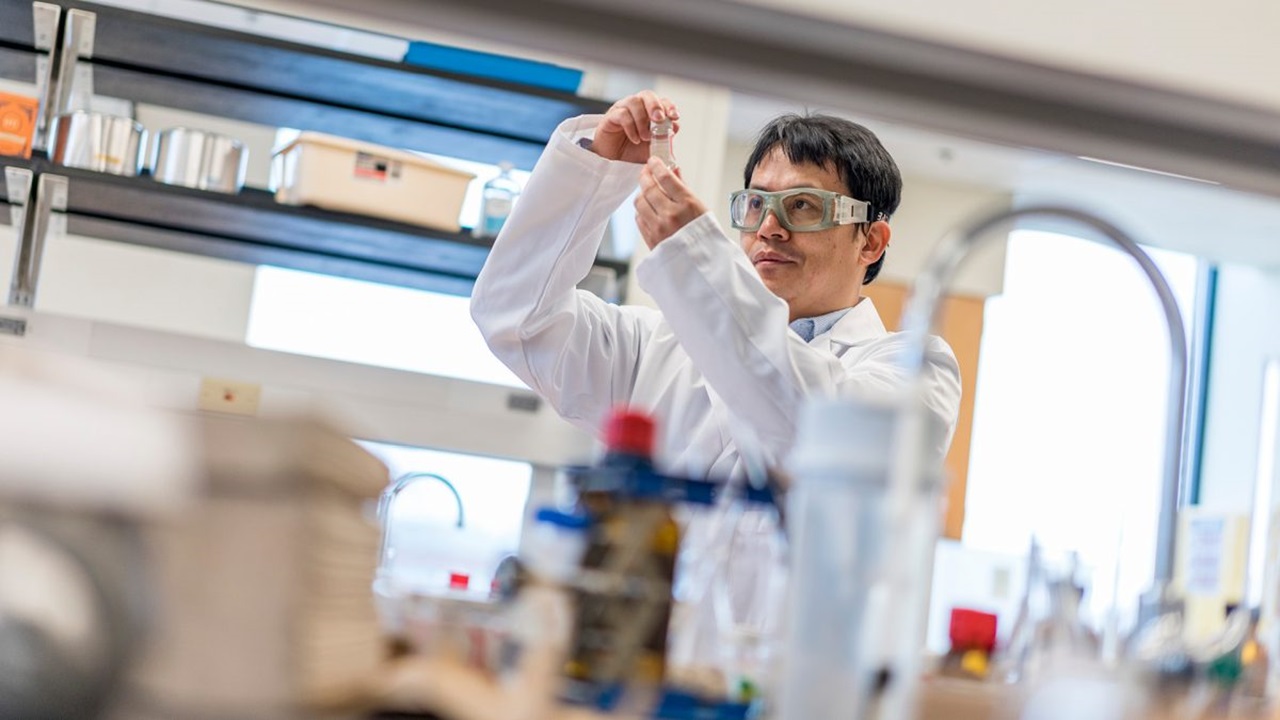USD Wins National Award to Start Biotech Company, Develop New Meth Overdose Treatment

Earlier this year, the team sent their proposal through the NIDA “$100,000 for a Start a SUD Startup Challenge,” which offered ten awards of $10,000 each to winning teams. The goal of the challenge is to support research ideas that would further an understanding of Substance Use Disorders (SUD) and that are intended to be the foundation for the development of successful new startups.
"This novel treatment to reduce meth overdose mortality is both timely and necessary because it is ideally suited for addressing the complex physiological consequences of meth overdose."
USD’s interdisciplinary team consists of Rick Wang, Ph.D., associate professor of chemistry, Lisa McFadden, Ph.D., a basic biomedical sciences assistant professor, Marie Severson, a graduate student in McFadden’s laboratory, Greg Bertsch, Ph.D., an instructor in the Beacom School of Business, Jewel Goodman-Shepherd, Ph.D, assistant professor of health services administration, and Beth Lambeth, the technology transfer officer at USD.
The group plans to use the funds to further test a new technology discovered by Wang that treats meth overdose. They then will start the process of defining next steps for research and development, obtaining customer discovery feedback and working to commercialize the treatment.
The technology called Moscequest holds a 2018 granted patent. Currently, there are no FDA-approved therapeutics that can effectively reverse the effects of meth overdose, which makes Moscequest the first on the market. It is also possible that Moscequest could be used to treat an overdose of other illegal psychostimulant drugs, such as cocaine and ecstasy.
“Our team is excited to work on the next steps for taking this to market, including collecting industry feedback for using this as an emergency treatment. We believe in this technology’s ability to help people and solve a true market need.”
“This novel treatment to reduce meth overdose mortality is both timely and necessary because it is ideally suited for addressing the complex physiological consequences of meth overdose,” said McFadden. “The continued development of Moscequest may save lives while advancing nanomedicine in the nation and biotechnology in South Dakota.”
Drug overdoses are one of the leading causes of death in adults under the age of 50 in the United States. As meth use is rapidly increasing in the United States, particularly in rural areas, there is a crucial need for a new treatment.
“Our team is excited to work on the next steps for taking this to market, including collecting industry feedback for using this as an emergency treatment,” said Goodman-Shepherd. “We believe in this technology’s ability to help people and solve a true market need.”
